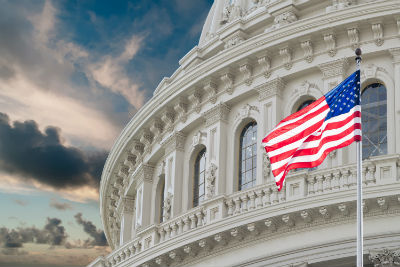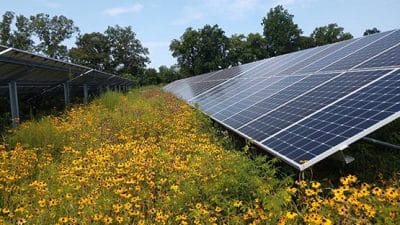
The U.S. House voted 221-203 on Thursday to pass the Lower Food and Fuel Costs Act, which includes provisions to shore up the food and agriculture supply chain, assure fair competition in the meat and poultry sectors, and lower food and gasoline costs.
The Lower Food and Fuel Costs Act includes Seventh District Democrat Abigail Spanberger’s Meat Packing Special Investigator Act, which would tackle anticompetitive practices and increase fairness in the American meat and poultry industry.
The bill would establish a new Office of the Special Investigator for Competition Matters at the USDA. This special investigator would focus on preventing shortages, enforcing America’s anti-trust laws, and holding bad actors in the meat industry accountable.
The bill also includes Spanberger’s Butcher Block Act, bipartisan legislation she spearheaded to expand regional livestock and meat processing capacity. The bill would help increase competition within the meat packing industry, as well as allocate grants to smaller producers to increase their hiring and processing capacities.
The House Agriculture Committee also voted to pass this legislation last month.
This morning, the House also unanimously cleared Spanberger’s bipartisan American Food Supply Chain Resiliency Act for inclusion in the package. This legislation focuses on helping small and medium-sized farms and agribusinesses navigate supply chain challenges.
The bill would establish Supply Chain Regional Resource Centers through cooperative agreements with USDA. These Centers would offer locally tailored coordination, technical assistance, and grants — leading to more resilient, diverse, and connected supply chains.
Spanberger first introduced this legislation in May.
“Congress cannot shy away from addressing the urgent economic challenges that our local communities and our entire country — and that challenge continues to be inflation,” Spanberger said. “We know how rising prices, consolidation across industries, and supply chain challenges are impacting America’s families, businesses, and seniors. And as lawmakers, our job is to listen to the people we represent — and then respond with legislation that can help solve those problems. And indeed, this package — the Lower Food and Fuel Costs Act — is just that.”
The Lower Food and Fuel Costs Act would also:
- Lower Fertilizer Costs to Lower Food Prices: expands USDA loans to farmers and rural entities for rural broadband and precision agriculture and covers 100 percent of the cost of nutrient management for farmers.
- Lower Meat & Poultry Costs by Increasing Competition: establishes a USDA Special Investigator for Competition to crackdown on meatpacking conglomerates and expands livestock and meat processing capacity to alleviate supply chain bottlenecks.
- Lower Prices at the Pump by Expanding Fuel Options: makes Unleaded 88 more accessible and readily available by allowing year-round sale at the pump and invests in additional storage and dispensing equipment.
Read a detailed fact sheet for H.R. 7606 here.
“Supply chain disruptions and stubborn inflationary pressures have created serious challenges for farmers and consumers, leading to higher costs in the field and the grocery store. I was proud to vote for the bipartisan Lower Food and Fuel Costs Act to help address these issues by strengthening our supply chain, bolstering competition, and providing viable, cheaper biofuel alternatives for consumers,” Fourth District Democrat Donald McEachin said. “The legislation supports American farmers by lowering input costs like fertilizer and providing new tools for nutrient management. Virginians are feeling the pinch of rising costs, and I am working alongside House Democrats to lower prices and provide relief to consumers – this legislation is an important step in those efforts.”
“Rising costs and supply chain issues continue to impact working families and small businesses in Hampton Roads and across the country,” Second District Democrat Elaine Luria said. “The Lower Food and Fuel Costs Act will reduce gas prices, address inflation, strengthen supply chains, and cut costs at the grocery store for Coastal Virginians. I was proud to support this legislation today, and I remain committed to working with my colleagues on both sides of the aisle to find solutions and lower costs for families in the short and long term,” Rep. Luria said.










